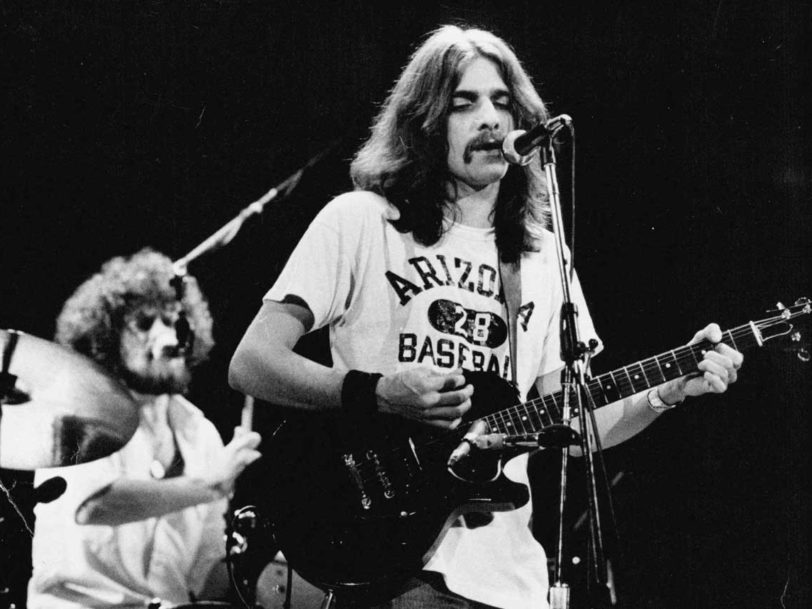“We nicknamed him The Lone Arranger. He had a vision”
As well as revealing his eye for the small telling detail, Lyin’ Eyes also reflected the hard graft Frey put into the craft of writing a hit song. Frey said he remembered “how religiously” Browne worked on honing his lyrics, something that made him realise “just how much perspiration was involved” in writing a successful song. “We bust our ass to make records,” Frey told interviewer Tom Nolan in 1975. “We agonise over the lyric. We analyse every ‘and’, ‘the’ and ‘but’.”
As well as being a talented singer and guitarist, Frey became a powerhouse songwriter for Eagles, having composition credits on a number of the group’s most memorable hits, including Best Of My Love, I Can’t Tell You Why, One Of These Nights, Take It To The Limit, The One You Love, Tequila Sunrise, New Kid In Town, Heartache Tonight and Hotel California – songs that captured a sense of world-weariness that was integral to a troubled decade. Frey was also extremely adept at writing chord structures. The ones you hear on The Last Resort and on Desperado were devised by him.
“We gave Glenn a nickname, The Lone Arranger,” Henley wrote in 2003. “He had a vision about how our voices could blend and how to arrange the vocals, and, in many cases, the tracks. He also had a knack for remembering and choosing good songs.”
“The zenith of the Eagles”: Hotel California
The bestselling single Hotel California, which Frey co-wrote with Henley and Don Felder, “was the zenith of the Eagles in terms of what we wanted to say and how we put it together”, according to Frey. Opening their Hotel California album, the song reflected Frey’s belief that songs should be “cinematic” in structure, painting vivid pictures. “As far as I was concerned, being visual – to start with a picture – was the first and most important aspect of lyric-writing,” Frey told Los Angeles Times in 1993. “You can look at the list of Eagles songs from Take It Easy through to Hotel California, and in the first four lines, we put you someplace: ‘On a dark desert highway…’, for example. The openings of songs are very important, so I’ve always considered myself to be a visual songwriter.”




